Google is all about providing users with personalized search experiences. As part of their efforts to tailor search results to each individual, Google attempts to automatically detect a user’s location based on their IP address. When someone performs a search for certain products or services at google.com, Google displays local businesses that provide the products or services that the user is seeking. Google’s algorithm determines which websites deserve to be at the top of the search results. If your business does not rank highly in local search results, you could be missing out!
Here’s an example of how this works…
If someone performs a Google search for: Florists Asheville North Carolina, they will see the following list of local businesses (see figure 1):
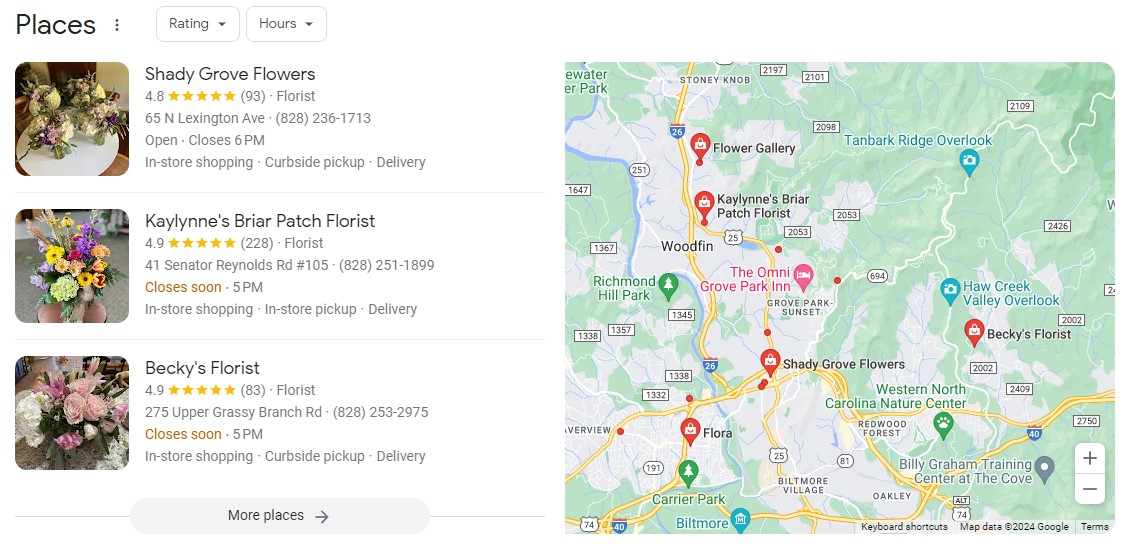
These results have been tailored (by Google) to list the businesses that most closely match the products or services that the user’s search terms represent, at the top of the list. The results are also influenced by the user’s IP location.
What’s interesting about Google’s local search results, is that the results themselves are formatted differently for different categories. For example, Google shows the following 3-pack format for local results when searching for “food near Asheville NC” (e.g. see figure 2):
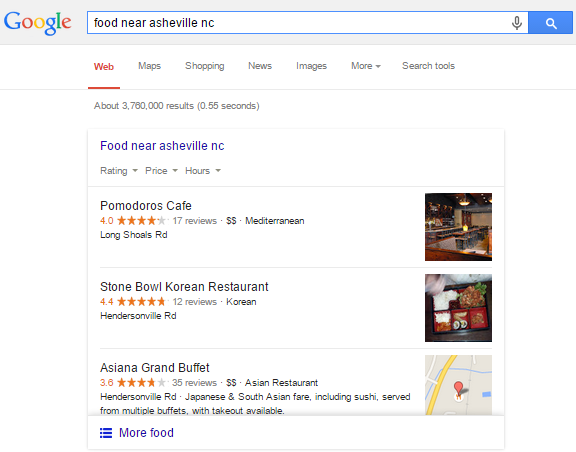
So if Google knows where you are, why don’t local search results appear for you all of the time?
It’s important to note that Google only displays local search results for certain key phrases that its search algorithm determines are categorized as “local services.” If a search phrase is not recognized by Google as a “local service,” then local search results will not be displayed.
For example, if someone performs a Google search for “Red Flowers Asheville NC”, only organic results are displayed, not local listings (e.g. see figure 4). The reason is that “Red Flowers” is not a phrase that is included in Google’s “local services” category.
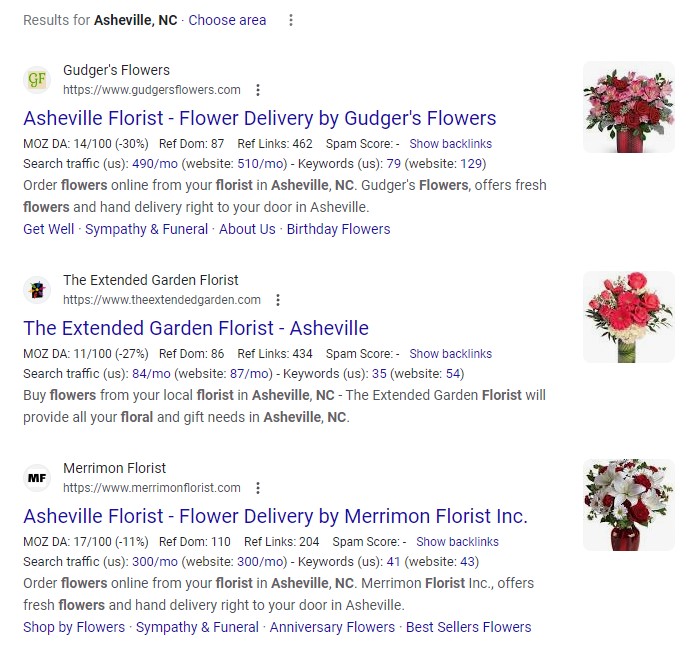
The search results above (e.g. see figure 3), do not include a map or any contact information to the right of each listing. This is a clear indication that Google is displaying organic results based on website optimization and not local listings.
While adding a city to a search for a service that Google has not defined as a “local service” (i.e. adding “Arden” to “B2B SEO”) will improve the odds of finding a business in that city (i.e. Net Site Marketing), it will not result in Google displaying a dedicated list of local businesses with contact information, as seen in figure 1.
So what does Google consider to be local services?
The only true way to know which key phrases are categorized as “local services” is to create a Google Business Profile, and begin typing in keywords that describe what your business is, in the Category section (e.g. see figure 4 ).
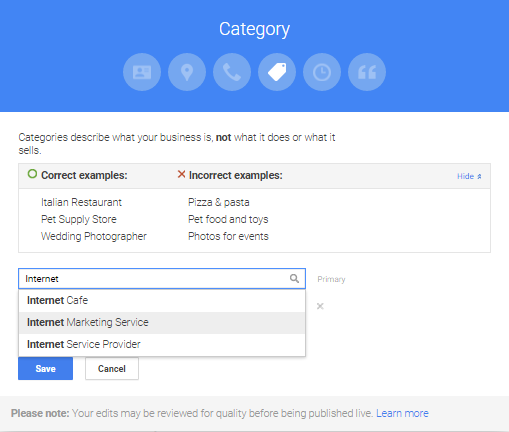
As you type the words into the Category section, you will be limited in your choices. If you type a phrase that is not recognized by Google as a “local service” category, Google will not accept it (e.g. see figure 6 below).
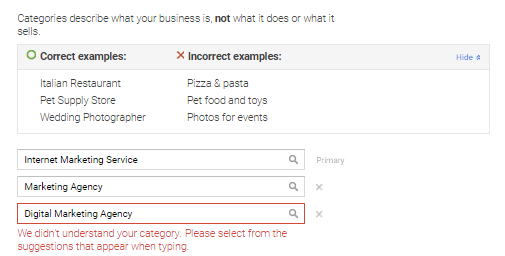
The positive aspect of this, is that it enables you to know exactly which phrases will help your business website to appear in local search results and which ones will not help. However, this method leaves it up to you to utilize trial and error to essentially guess what words Google will allow you to utilize.
From an SEO standpoint, it also means the exclusion of phrases that could better describe your business and be more popular among your target audience. For example, Net Site Marketing would be better categorized as a “Digital Marketing Agency” rather than a “Marketing Agency” (too general), but Google does not recognize “Digital Marketing Agency” as a category (e.g. see figure 6, above).
Web hosting company Bluementhals has posted what they claim is a complete list of Google’s “local services” categories here. (Please Note: Net Site Marketing is not affiliated with Bluementhals and has not verified that all of the 2,294 category options on this list exist in Google Business Profile.)
Why are my competitors ranking higher in local search results?
It’s important to understand that Google takes much more into account than just physical location in determining which order to display businesses in local search results. In addition to distance from the user’s IP address location, Google also looks at relevance and prominence.
Relevance: How well your business listing matches what the user is looking for. It is very important to carefully select the most relevant business category for your Google Business Profile, as well as include relevant keywords that describe your products and services in the About section of your Google Business Profile.
Prominence: Google defines prominence as “how well-known” your business is. Essentially, it’s a popularity contest. Businesses that have lots of favorable reviews on their Google Business Profile, a high number of followers and social interaction, and a high number of visits to their websites, will typically rank more highly than those that don’t. Businesses with well-known brand names will also benefit from Google’s prominence factor in determining the order of local search rankings.
Google has not released the exact formula for its local search results algorithm, and there is no way to buy higher rankings. However, there are steps that you can take to improve your website’s chances of ranking well. To learn more, read Part 2 ~ “How to Outrank Your Competitors in Google Local Search Results.”
